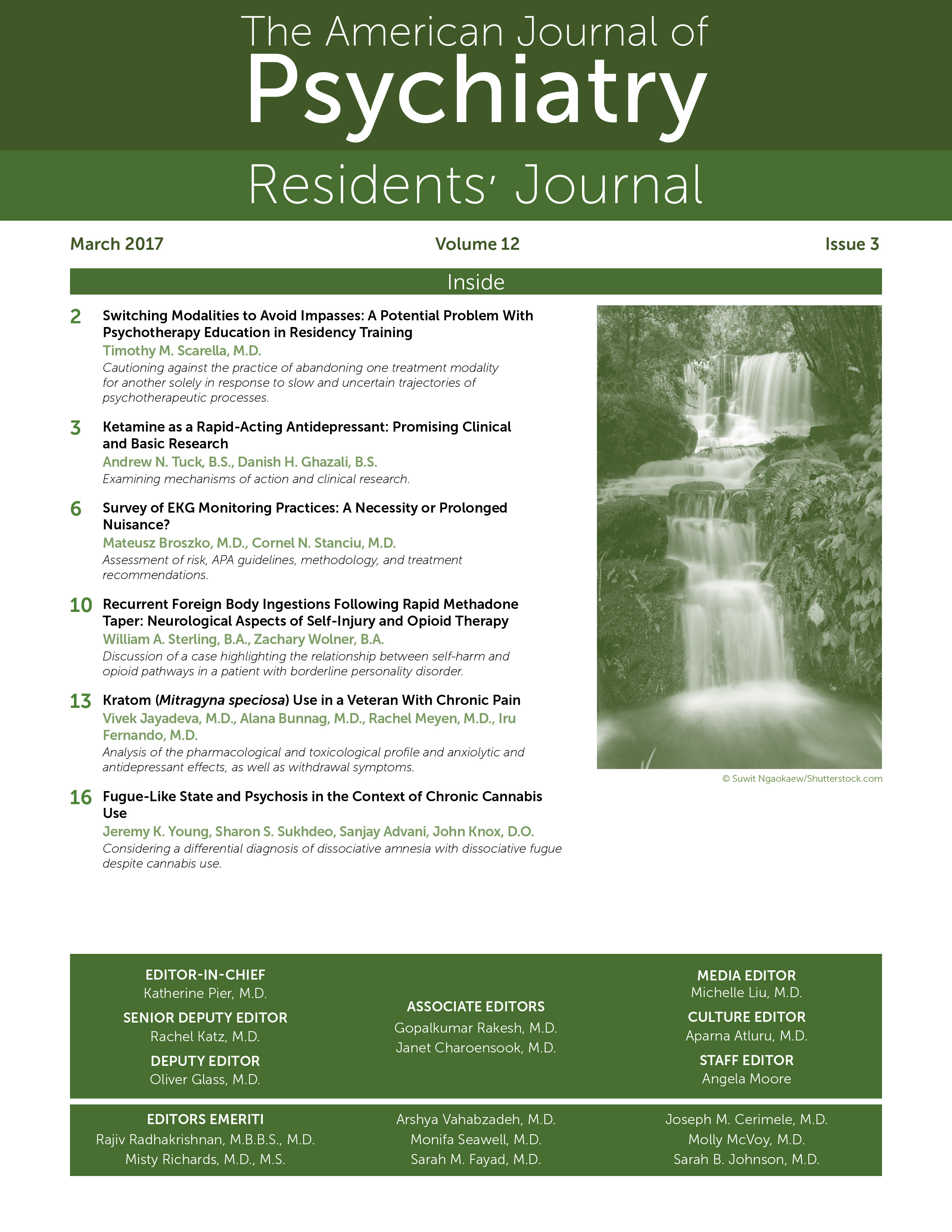Switching Modalities to Avoid Impasses: A Potential Problem With Psychotherapy Education in Residency Training
Psychiatry residencies teach multiple psychotherapeutic modalities. The pursuit of proficiency in diverse methods creates a dilemma that is not often encountered by practicing psychotherapists. Trainees select from tools in which they lack proficiency and of which their understanding is incomplete. Training curricula in psychotherapy, trainee comfort and preference, and pressure from supervisors all factor in this decision.
Patients, particularly patients with treatment-resistant symptoms and comorbidities, may not improve according to plan. When meeting an impasse, a frustrated resident may understandably ask, “Am I providing the right treatment?”, and seek additional supervision.
Experience shows that psychotherapy supervisors tend to practice almost exclusively in one method (and may disparage other models), and training programs employ supervisors from a variety of therapeutic disciplines. When treatment stalls, trainees may consult a practitioner of a therapy method different from the one they are currently using. The supervisor may insist with seductive confidence that the lack of progress is due to use of an “incorrect” treatment. The promise of better outcomes leads the malleable resident to change course instead of working through deadlocks.
Each psychotherapeutic system incorporates strategies for resolving periods of stagnation. A cognitive-behavioral therapy (CBT) supervisor, for example, can guide a resident conducting CBT through impasses within that theoretical framework. Treatment inertia often hints at core components of the patient's psychopathology; a decision to change methods risks distancing the work from the exact place it needs to be.
Adherence to a psychotherapeutic model is one indicator of treatment outcome, highlighting the risks of mid-treatment changes in a method (1). The patient-therapist relationship is also a key predictor of success (1, 2), and switching of orientation may weaken alliance by altering the way a therapist intervenes in the room (i.e., behavioral-based homework assignments versus insight-oriented interpretation), a change that may be jarring for patients.
Though I acknowledge that there are select times when a change in approach is reasonable, I worry that the decision to abandon one treatment modality for another is too often in the service of an opportunity to learn a new technique or in response to disappointments over the slow, uncertain trajectories that define the psychotherapeutic process. Additionally, I wonder if the idea that therapeutic change remains elusive not because of the resident's clinical inadequacies but because the wrong tools are being used and may be more palatable in the context of the narcissistic vulnerabilities unavoidably cultivated by psychiatric training (3).
When presented a case already in progress, supervisors should be aware of the need for residents to learn to work with resistance in all modalities. Rather than wholesale recommendations to switch to one's orientation of choice, a supervisor is better served to respect the ability of other evidence-based and time-tested therapies to enact change. Encouraging the trainee to work with a supervisor familiar with the current therapeutic mode to challenge resistance, while also discussing how one might approach the patient in an alternative theory, would maximize educational benefit. Working through resistance while adhering to a given therapeutic orientation enhances patient care and resident development.
1. : Therapist success and its determinants. Arch Gen Psychiatry 1985; 42:602–611 Crossref, Google Scholar
2. : Relation between working alliance and outcome in psychotherapy: A meta-analysis. J Counsel Psychol 1991; 38(2):139–149 Crossref, Google Scholar
3. : Narcissistic issues in the training experience of the psychotherapist. Int J Psychoanal Psychother 1984; 10:293–318 Google Scholar



